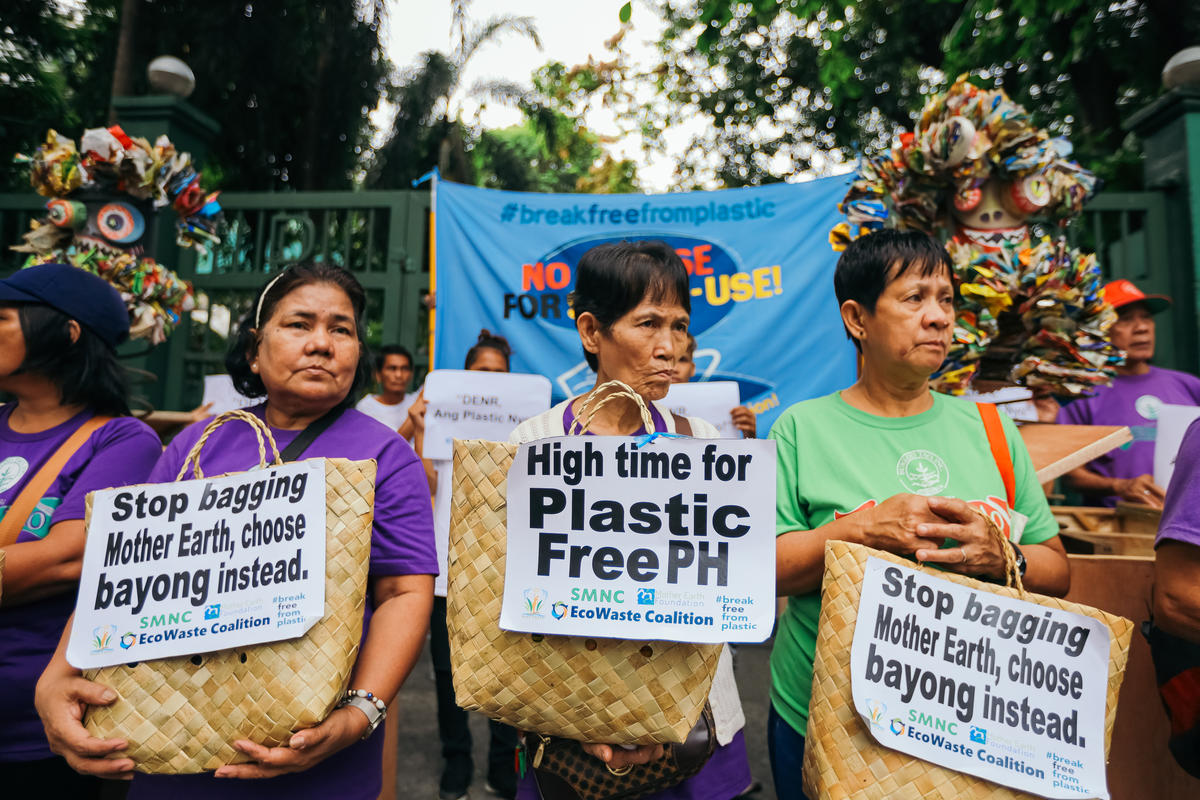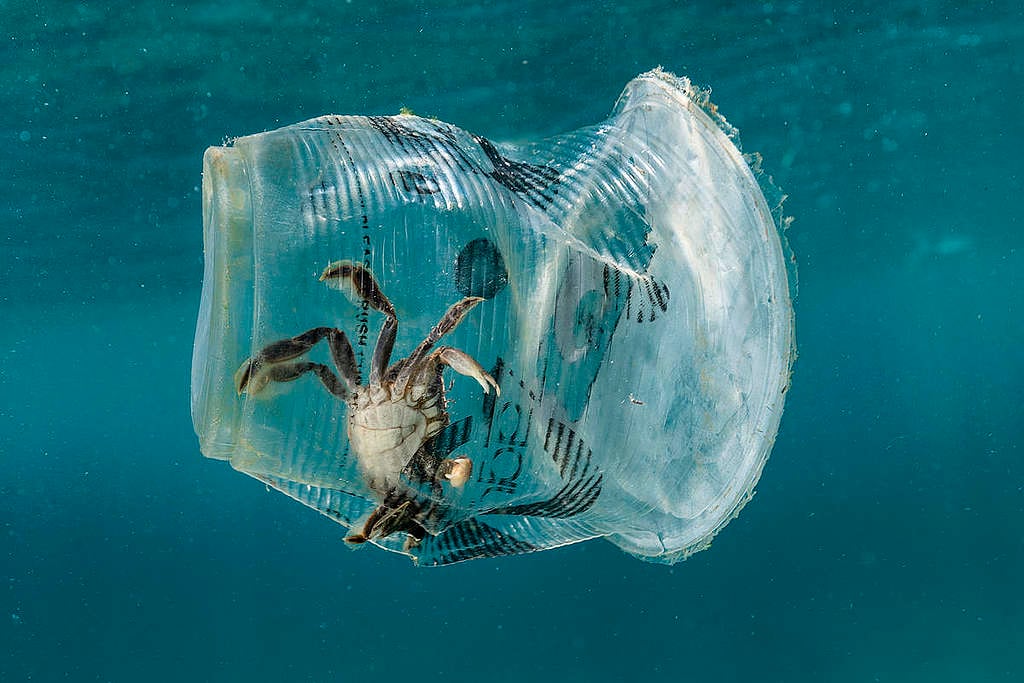Greenpeace renews call for ban on single-use plastics
QUEZON CITY, Philippines — With one year left in office, the Duterte administration must take urgent measures to implement an environmentally sound national ban on single-use plastics (SUPs) to protect Filipinos from further health and environmental harms. This was the challenge of Greenpeace Philippines to the national government after President Rodrigo Duterte raised concerns over the rise of plastic waste during the pandemic. [1]

“Just by doing two things, the President can make a big difference in addressing plastic waste,” said Greenpeace campaigner Marian Ledesma. “First, President Duterte needs to pass an Executive Order mandating a just nationwide phaseout of single use plastics and calling for the strict implementation of the Ecological Solid Waste Management Act. Second, he needs to support and ensure the passage of an environmentally sound national law that bans single-use plastics.”
Greenpeace also noted that several international studies have been pointing the finger at the Philippines and its rivers for causing plastic waste in the oceans. [2] However, the environmental group maintains that rather than blaming communities and countries for plastic pollution, responsibility and accountability must rest on plastic waste producers. In the Philippines, these entities include manufacturers such as Nestle, Coke, Pepsi and Unilever, which produce millions of products packaged in throwaway sachets and packaging [3]. Local governments and national agencies–and Filipino taxpayers–are then left to deal with cleaning up their trash.
“The President needn’t look far to identify who is responsible for plastic pollution,” Ledesma said. “We challenge him to do a brand audit of Pasig River in Malacanang’s backyard. We are sure he’ll find waste produced by all these manufacturers. President Duterte can turn his frustration over plastic pollution into concrete action by ensuring an environmentally sound ban on single-use plastics.”
At present, at least 500 local government units have already implemented single-use plastic regulations despite the absence of any national policy that specifically addresses the scourge of plastic waste. Local plastic ban declarations vary from prohibiting the use of different types of single-use plastic in public markets and regulating restaurants, to mandating local businesses to stop the use of single-use plastics.
Meanwhile, House Bill 9147 or “Single-Use Plastic Products Regulations Act” is currently approved on second reading. However, while the bill has the right intentions in eliminating unnecessary single-use plastic items, several of its provisions are problematic. The bill includes provisions to allow incineration [4] of plastic waste as well as offsetting [5]. Greenpeace is calling on President Duterte as well as government agencies to reject such measures.
“The extent and urgency of the plastic issue especially during the pandemic requires us to institutionalize efforts that regulate plastic production as a priority over disposal systems,” Ledesma said. “The phaseout of single-use plastic production and use is even more crucial than waste management, as a ban would effectively address multiple environmental, social, and health issues throughout the life cycle of plastics.”
Notes to editors:
[1] In a televised address last June 7, President Duterte said the COVID-19 crisis has also given rise to plastic waste. Read more.
[2] Studies referring to the Philippines as a top contributor to ocean plastic pollution:
- Meijer, J.J.L, Emmerik, T., Ent, R., Schmidt, C., Lebreton, L. (2021). More than 1000 rivers account for 80% of global riverine plastic emissions into the ocean. Sciences Advances.
- Jambeck et. al. (2015). Plastic waste inputs from land into the ocean. Science Advances.
[3] Brand Audit 2020
[4] The Center for International Environmental Law estimated that plastic production and incineration would result in more than 850 million metric tons of greenhouse gas emissions, equivalent to 189 500MW coal plants. In a study with Global Alliance for Incinerator Alternatives and other groups, CIEL stated that thermal waste treatment including incineration, co-incineration, gasification, and pyrolysis result in the release of toxic metals, such as lead and mercury, persistent organic pollutants (dioxins and furans), acid gases, and other harmful substances to the air, water, and soils.
[5] Offsetting produced plastic, funding or implementing projects/operations to intercept or remove plastic waste from landfills or the environment to offset or compensate for the amount of plastic produced, does not curb the pollution created during the manufacturing of plastic. Its inclusion will not deter companies from using SUPs but provide them a convenient way to circumvent phasing out plastics in the operations. Known offsetting schemes in the Philippines have also resorted to co-processing, essentially burning plastic as an alternative fuel, which leads to the same issues as incineration.
Media contact:
Angeli Cantillana
Communications Campaigner, Greenpeace Southeast Asia – Philippines
[email protected] | +63 998 595 9733

Our coastlines are among the most impacted by plastic pollution in the world. Be part of the solutions!
